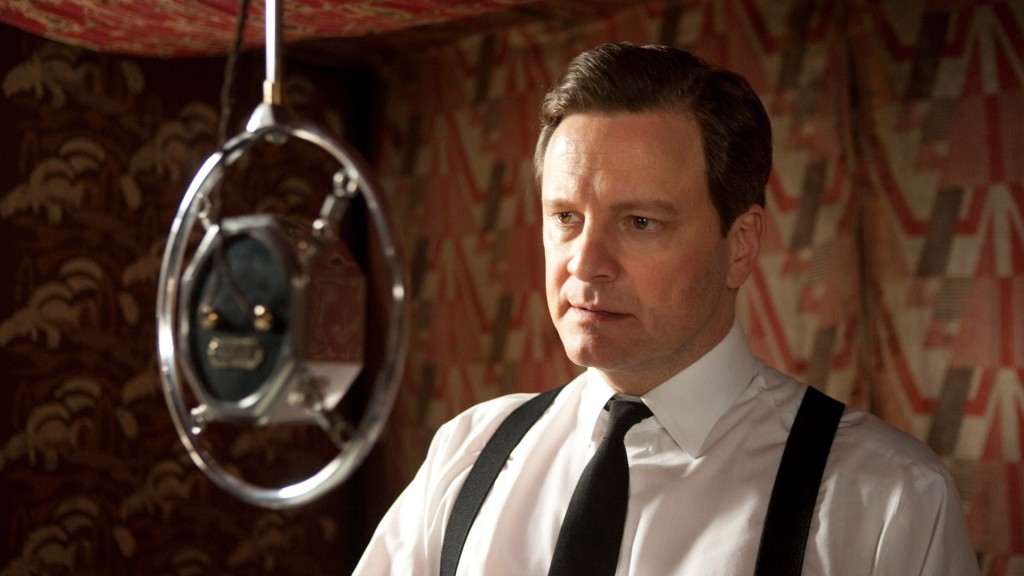Sarah Fitzgerald blogs on her personal blog and works in the Independent Living Movement. I met her a few years ago and have kept in touch both on and off line. She took up the offer of a guest post on the blog and I am delighted she did so.
Saturday night was the first DVD night I have had in a long time. My husband was gone out for the night, which meant that I had time to watch The King’s Speech, a film that I have been meaning to watch for some time. I enjoyed it thoroughly, just like I knew I would. Moreover, it reinforced the idea that, regardless of our background or history, people with disabilities have a right to be heard.
Prince Albert (Bertie) had a very important role to assume. Inheriting the role of King by default (his brother was next in line for the throne, but chose to marry a divorced American woman instead), he had no choice but to accept the help of eccentric speech therapist, Lionel Logue. Those of us who stammer or who have speech impairments know how difficult Speech Therapy can be. Personally, I remember the endless tongue exercises, the voice exercises, the breathing exercises and the difficulty I had in pronouncing certain sounds.

Heretofore, one’s ability to express themselves orally, in a clear and assertive manner, was directly related to one’s intelligence. Sadly, this misconception is still widespread in 2011. Often, a person with a speech impairment has many interesting things to say, but does not believe that these things will be heard, and thus stays silent.
King George VI learned how to overcome his fear of public speaking. Fear of ridicule and rejection seemed to exacerbate his stammer. He had internalised criticisms made by his father who, in one scene, was almost nagging him to speak slower. (By the way, there is nothing more annoying to a person with any disability than to be told to ‘take our time’; doing so suggests that our disability is problematic and unsettling to others.) However, like Ed Roberts (founder of the Independent Living Movement), the king learned to use his anger to his advantage and, as a result, was able to lead the British people during the Second World War.
Seventy-two years have passed since King George VI’s first wartime speech in 1939, and yet it seems that some of us have not yet found our voices. As Ireland plunges deeper into economic chaos, people with disabilities are in grave danger of becoming invisible. The media is constantly telling us that further cuts to vital services are inevitable. We are told that ‘everybody is in the same boat’, but let’s be honest: people with disabilities have never been seen as equals by the rest of Irish society.
The recession has provided us with the ultimate opportunity to prove how far we’ve come since the Independent Living Movement came to Ireland over twenty years ago. Many of us yearn to be seen as equals in society, yet the media has portrayed us as vulnerable, helpless people with no voices of our own. True, this approach may help us to safeguard funding for vital services; without them many of us could not live independently. Yet speaking publicly about the obstacles that we face in our everyday lives, and reminding the Irish public that we are all equal, may prove a more effective approach.
This recession is not going to end any time soon. The rate of unemployment in Ireland is continuing to rise, and an increasing number of people are struggling to repay debts. Our economic climate understandably has an impact on the way we perceive the world around us, but does this mean that we should not speak out against cutbacks to our services? How do we expect our needs to be accommodated if we don’t vocalise what these needs are? Why are we accepting being labelled as ‘disadvantaged’? We would not be at a disadvantage if our basic needs were being met. Ireland is sinking deeper and deeper into recession: what exactly are we doing to ensure that we stay afloat? And who will save us if we can’t find our voices in time: will we drown in a sea of uncertainty and angst?
In order to be able to speak publicly, King George VI had to let go of all of the negative experiences that impacted on his confidence in the past. We, too, have to let go of the negative attitudes that have led us to believe that we must remain the most vulnerable people in society. Only when we let go of all of this negativity will we be able to stand take our place in Irish society and say, with confidence and gusto, ‘I have a voice.’


4 Comments so far